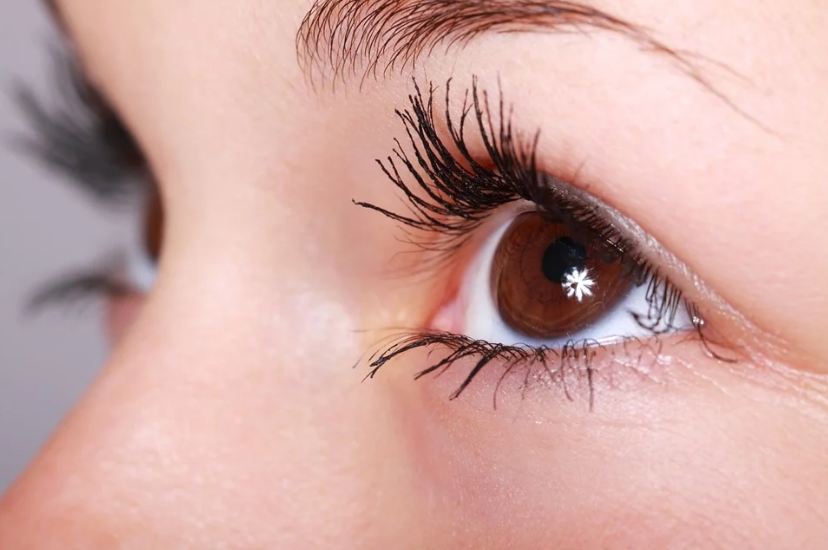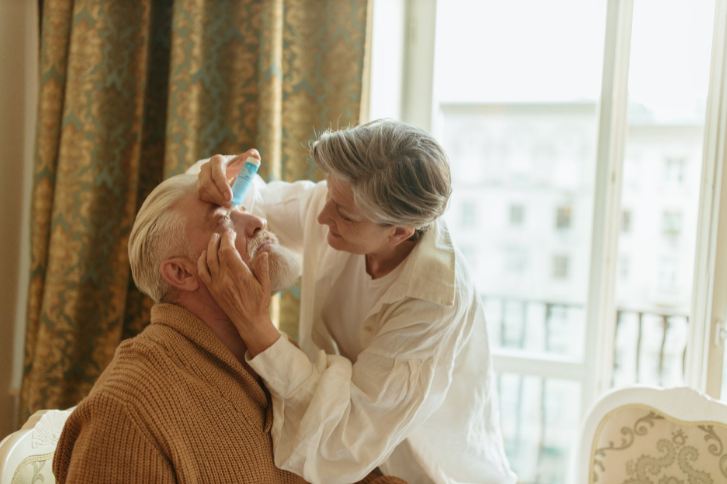Dry eyes pertain to the lack of lubrication and moisture on the surface of the eye. Enough and consistent layer of tears on the surface of the eye is essential to keep the eyes healthy and comfortable. When you have dry eyes, some of the symptoms that you might feel are burning sensation, itchy eyes, sore eyes, aching sensation, blurred vision, fatigued eyes, dryness sensation, red eyes, blurred vision, heavy eyes, and photophobia or light sensitivity.
This condition can either be temporary or chronic. It happens when the tear secretors don’t produce enough tears or when the tears evaporate fast. When chronic dry eye is left untreated, it can lead to different complications, including the double vision to infections. If you happen to experience it, you can check out our Tips for Keeping Your Eyes Moisturized. To be able to treat dry eyes effectively or prevent them, it is also important to understand the underlying causes. Here are the primary causes of dry eyes:
1. Aging
Aging is probably the number one cause of dry eyes. Even though anyone at any age can have dry eyes, it is a common condition for older people. Dry eyes tend to affect people over the age of 50. This is because tear production declines with age. Dry eyes caused by aging can’t be prevented, but using artificial tears regularly can give extra lubrication to coat your eyes and relieve their dryness.
2. Vitamin A Deficiency
Lack of vitamin A can also cause dry eyes. Vitamin A is known to promote healthy eyes. Therefore, a diet that is low in foods that contain vitamin A can lead to dry eyes and other vision impairments, including night blindness. To know your vitamin A levels, a blood test can be done. You can also consult an eye doctor about using eye drops that have vitamin A. However, they are not usually used for dry eye treatment. It is also great if you eat foods that are rich in vitamin A, such as carrots, spinach, eggs, peppers, and broccoli.
3. Certain Medications
Tears are made up of water, mucus, and oil. There are some medications that can reduce the production of mucus, which also contributes to chronic dry eye. Some of these include antidepressants, antihistamines, beta-blockers for hypertension, and diuretics. It is better to talk to your doctor if you experience eye dryness after taking your medicines. You can also use artificial tears along with your medications to keep your eyes moisturized.
4. Computer Exposure
A lot of people today work on computers. Those who spend a lot of screen time might experience eyestrain and tension headaches. Also, staring at a computer usually affect the tears and leads to dry eyes. People who work at a computer monitor for longer hours blink less often. With this, the tears evaporated more quickly. This is why it is important to take breaks every now and then. Look away about every 20 minutes and repeatedly blink to re-hydrate your eyes.
5. Wind Exposure
Being exposed to high winds in cold climates can also cause tears to evaporate quickly, which leads to chronic eye dryness. To be able to protect your eyes, you can use lubricating eye drops and wear sunglasses that wrap around the head to keep the eyes safe from cold and wind.
6. Sjögren’s Syndrome
This is a kind of autoimmune ailment that causes white blood cells to attack your salivary glands and tear glands, which reduces the production of tears. Steroid eye drops might be prescribed by a doctor. If ever your dry eyes won’t respond to eye drops, your doctor might require surgery that involves the insertion of silicone plugs into the tear ducts to preserve some of your tears.
7. Allergies
Allergies can also trigger chronic dry eye, as your eyes may appear red, watery, and itchy. Taking an oral antihistamine can reduce your allergies, but these medications can worsen your symptoms of dry eyes. If you ever experience only eye symptoms from allergies, you can ask your doctor about antihistamine eye drops.
8. Low Humidity
Dry air also leads to dry eyes. If there is low humidity in your home or if you work near an air vent, you can experience eye dryness. The best thing that you can do is move your bed or desk to a spot where the air does not blow directly on your eyes. It is also great if you have a humidifier that can moisten the air and prevent evaporation.
9. Wearing Contact Lenses
Long-term use of contact lenses is another cause of chronic dry eye. This is because there are some contact lenses that limit oxygen to the cornea. If you wear contact lenses and you feel that your eyes do not have enough lubrication or moisture, it is better to switch to eyeglasses or consult with your eye doctor for contact lenses that are made for dry eyes.
10. Smoke Exposure
Smoking and exposure to secondhand smoke are also causes of dry eyes. Therefore, to prevent this, make sure that you avoid environments that are smoky. If you smoke and you notice your eyes getting dry, take steps to quit smoking, such as nicotine replacement therapy or ask for prescription medication to restrict cravings.
These are some of the primary causes of dry eyes. If you experience dry, red, and painful eyes over a long period, it is best to talk to your doctor. This is important, especially when treatments at home are not helping with the condition. Dry eyes should be addressed immediately as they may lead to other complications, such as inflammation, infection, and eye damage. We hope this helped you learn more about the main causes of dry eyes.



